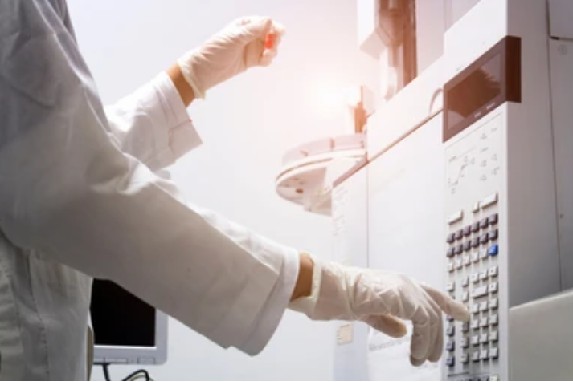Glycation Modification Analysis
Online Inquiry
Glycation occurs in natural and recombinant antibodies under physiological conditions and may alter their charge characteristics, produce acids, and have an impact on their stability and efficacy. Creative Proteomics carries out comparable evaluations of glycation based on the molecular characteristics of antibodies according to ICH Q9 risk assessment principles. Our professional team can perform a comprehensive quality control (QC) evaluation of the percentage of glycation (at the intact molecule level, subunit level, or peptide level), glycation sites, and distribution of the antibody drug according to regulatory and QC demands, as well as controlling the batch-to-batch consistency of the glycation at the charge level after full characterization.

What is Glycation Modification?
Glycation is a non-enzymatic condensation reaction between a reducing sugar (e.g., glucose) and a primary or secondary amine, and is distinct from Glycosylation modifications, which are formed by the commonly mentioned enzymatic reactions.
Effect of Glycation Modifications on The Quality Attributes of Antibody Drugs
- Effect of glycation on heterogeneity
Glycation modifications directly affect the charge distribution of the monoclonal antibody; glycation results in the loss of positive charge at the modification site, which affects the charge heterogeneity of the monoclonal antibody, shifting it towards the acidic region overall.
- Effect of glycation on biological activity
The glycation sites and spatial distribution of the antibody affect the activity of the antibody. If the number of glycation sites on the CDR region of the antibody is high, its activity may be more likely to be affected.
- Effect of glycation on the immunogenicity of antibody drugs
The potential effect of glycation on the immunogenicity of antibody drugs is mainly caused by AGE, the late terminal product of glycation. monoclonal antibodies in the form of AGE are significantly more immunogenic than normal antibodies. In addition, glycation-induced antibody aggregation also increases immunogenicity.
Analytical Methods for Glycation Modification of Antibody Drugs at Creative Proteomics
Creative Proteomics takes a range of advanced techniques to fully characterize and measure glycation modifications of antibody drugs. Our glycation analysis methods mainly include Boron Affinity Chromatography (BAC), methods based on charge difference separation (e.g., ion exchange chromatography, capillary isoelectric focusing electrophoresis, etc.), Nitrotetrazolium Blue Reduction Assay (NBT Reduction Assay), and Liquid Mass Spectrometry (LCMS).
| Methods |
Description |
Features |
| Boron affinity chromatography (BAC) |
A method for isolating cis-diol structures on sugars. |
Simple operation, no sample pre-treatment required. |
| Methods of separation based on charge differences |
Glycation modifications occurring on positively charged amino acids, such as lysine, result in the loss of their positive charge, which shifts the charge distribution of the monoclonal antibody towards the acid region as a whole, and thus allows for the detection of glycation by charge-separation based assays. |
Typically used for qualitative analysis of monoclonal antibody glycation. |
| Mass spectrometry-based analysis |
Quantification of the glycation ratio of monoclonal antibodies at the level of intact proteins or subunits is performed by liquid-liquid chromatography and other methods. At the same time, the glycation ratio of monoclonal antibody can also be analyzed at the peptide level by combining with enzyme digestion and other means. |
More comprehensive glycation modification data can be obtained at the peptide, subunit and intact molecule level. |
| Colorimetric method |
NBT can be reduced in glycosylated monoclonal antibodies, causing a change in absorbance at 525 nm, which in turn quantifies the percentage of glycation. |
Detectable glycation ratio of antibody drugs. |
Creative Proteomics provides our clients with authentic, reliable and timely characterization analysis with our advanced technology platform. Contact us to learn more about our glycation modification analysis services of antibody drugs. We will be happy to assist you.

